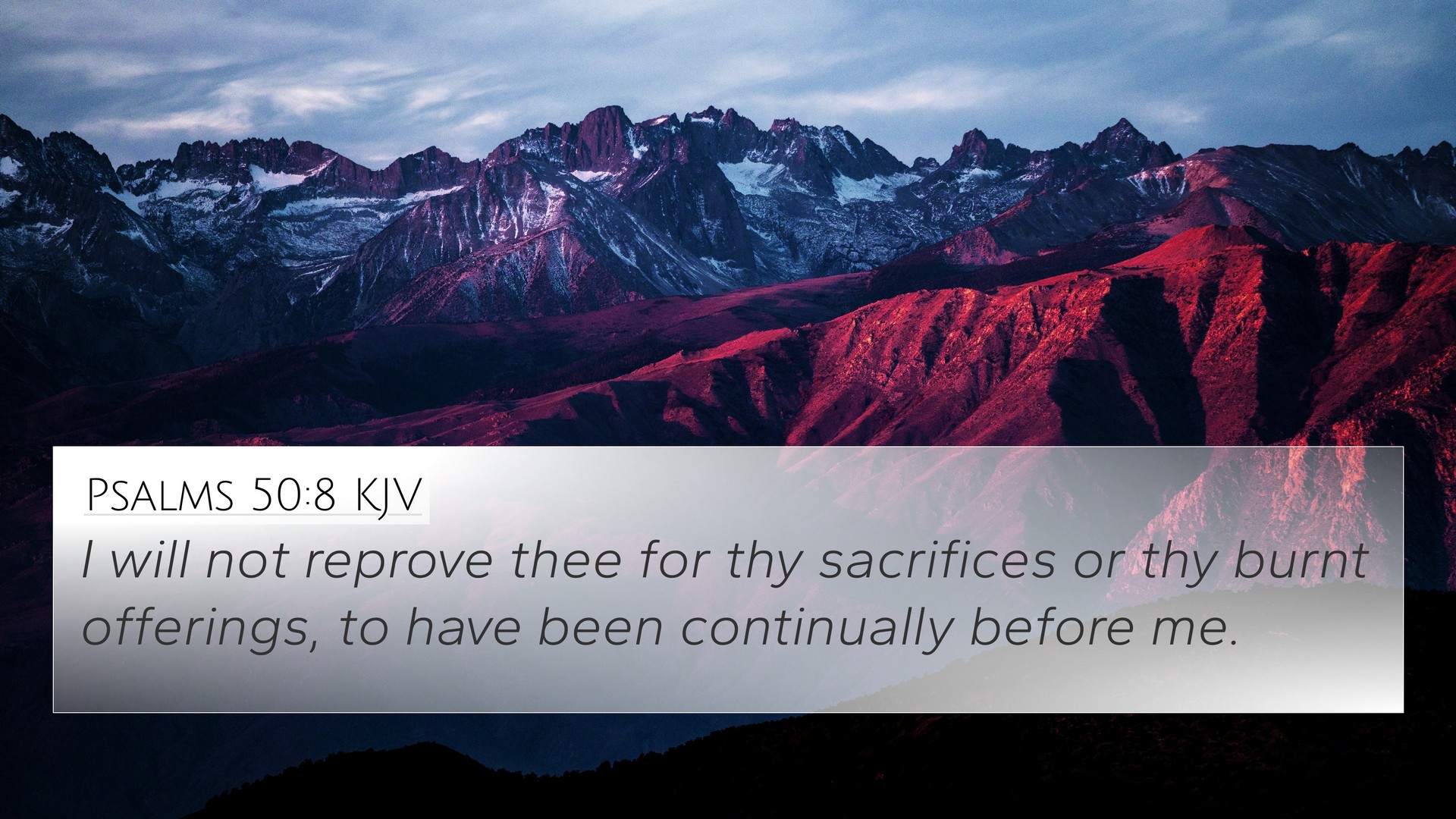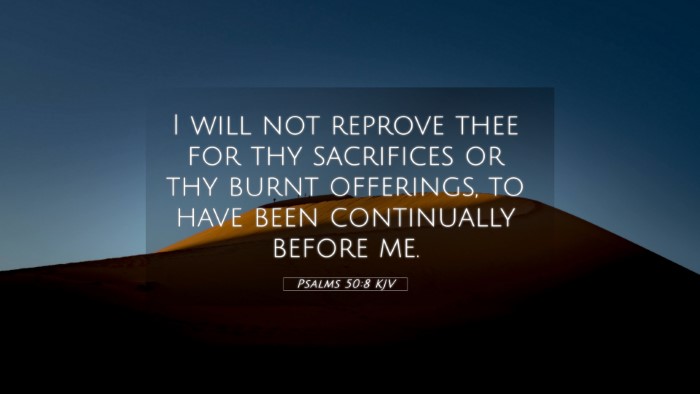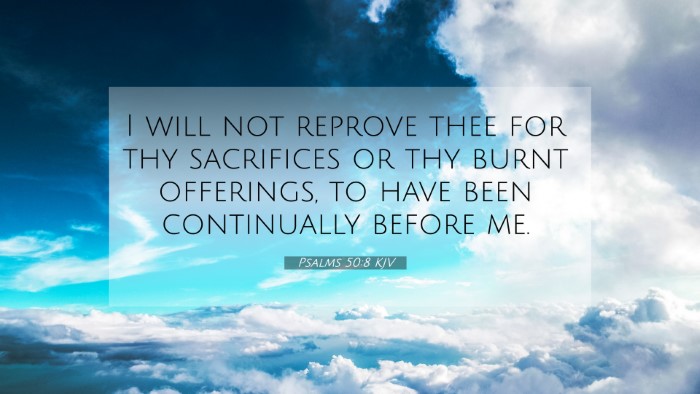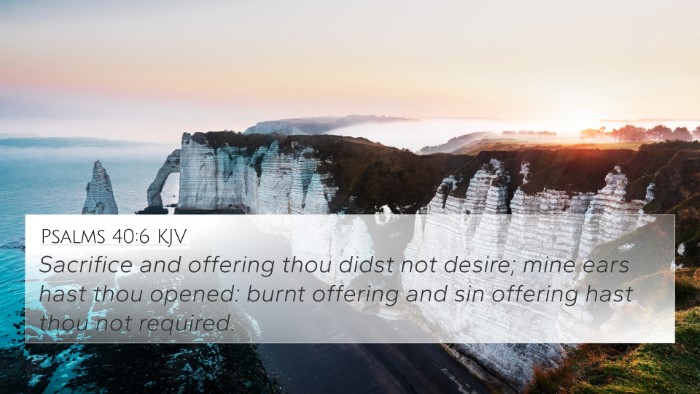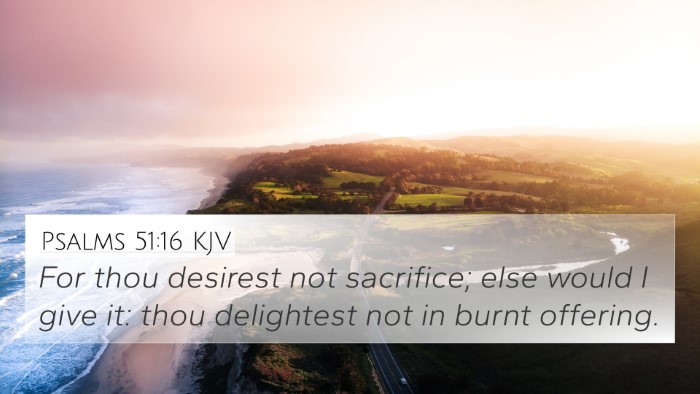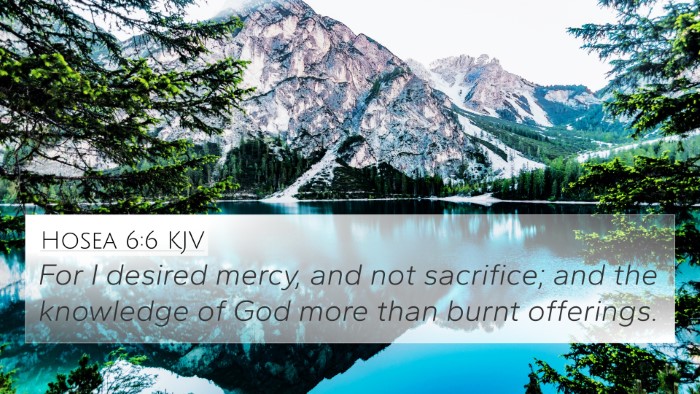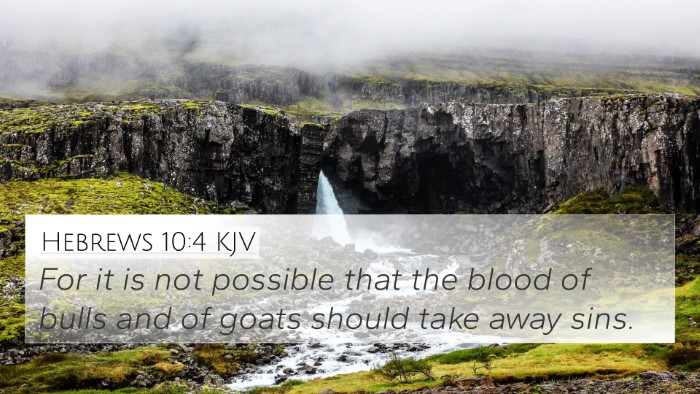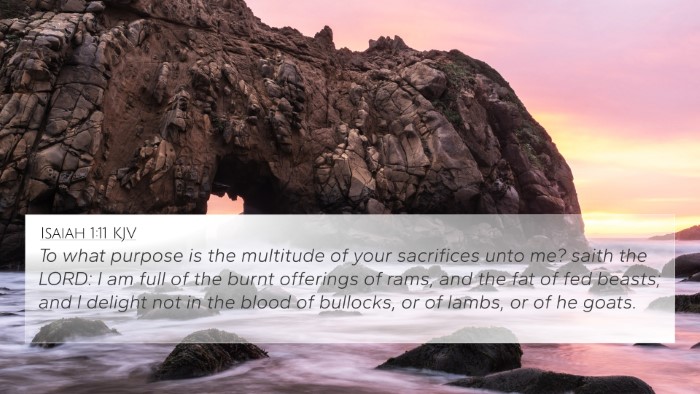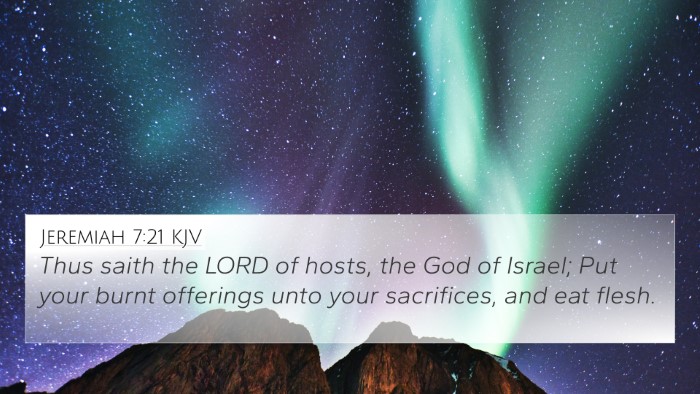Psalms 50:8 - Meaning and Interpretation
The verse Psalms 50:8 states: "I will not reprove thee for thy sacrifices or thy burnt offerings, to have been continually before me." This verse is part of a larger discourse where God reveals His thoughts on the nature of true worship and sacrifice.
Contextual Overview
The Psalmist sets the scene for a divine revelation, emphasizing the differences between mere ritualistic sacrifice and the heartfelt worship that God desires. There is a distinction made between what pleases the Lord and what is merely a formality. This insight is essential when conducting a comparative Bible verse analysis.
Summarized Insights from Public Domain Commentaries
-
Matthew Henry's Commentary:
Henry emphasizes that God is not displeased with the offerings themselves, as these were instituted by Him. However, rituals without a sincere heart do not satisfy divine expectations. He highlights that God desires obedience more than external sacrifice, aligning with the thematic Bible verse connections found throughout scripture.
-
Albert Barnes' Notes:
Barnes points out that the verse demonstrates God's awareness of the heart and intentions behind actions. He believes that while God does not reject the sacrifices, the emphasis is on spiritual devotion rather than mere adherence to rituals. This interpretation invites deeper reflection through the tools for Bible cross-referencing.
-
Adam Clarke's Commentary:
Clarke elaborates that the sacrifices were part of the covenant community’s worship, and while they are accepted, God desires a relationship that transcends routine worship. God's refusal to reprove indicates His desire for more than just compliant worship—He wants a genuine relationship.
Bible Verse Cross-References
This verse connects strongly with various scriptures that highlight the principles of true worship and sacrifice:
- 1 Samuel 15:22: "Hath the LORD as great delight in burnt offerings and sacrifices, as in obeying the voice of the LORD?" This verse emphasizes obedience over sacrifice.
- Micah 6:6-8: "Wherewith shall I come before the LORD, and bow myself before the high God?" This passage addresses the importance of justice, mercy, and humility as forms of true worship.
- Isaiah 1:11-13: God expresses that He is weary of burnt offerings and calls for repentance and righteousness instead.
- Hebrews 10:5-7: In the New Testament, God emphasizes that He desires a body prepared for service—highlighting that Old Testament sacrifices were shadowed by Christ's ultimate sacrifice.
- Psalm 51:17: "The sacrifices of God are a broken spirit; a broken and contrite heart." This underscores that God values our internal condition over our external offerings.
- John 4:24: "God is a Spirit: and they that worship him must worship him in spirit and in truth." This New Testament verse reiterates the idea that true worship must come from the heart.
- Romans 12:1: "Present your bodies a living sacrifice, holy, acceptable unto God." This reflects the transition from ritual sacrifice to a life lived as worship.
Understanding the Verse in Depth
When conducting a cross-reference Bible study, this verse becomes a cornerstone for understanding God’s perspective on worship. The connections between Bible verses provide a fuller understanding of His expectations and desires. Here are a few points of reflection:
- Heart Over Ritual: The significance of this Psalm reflects God’s desire that worship should be rooted in a sincere heart rather than mere outward compliance.
- Continual Presence: The phrase "to have been continually before me" suggests an ongoing relationship and awareness of God's presence, stressing the importance of living in acknowledgment of God.
- Reflection on Intentions: Believers are challenged to examine their motivations behind their worship and acts of service, aligning their practices with a heart devoted to God.
Inter-Biblical Dialogue
This verse serves as an excellent example for those interested in inter-Biblical dialogue. It raises questions about the continuity of God's expectations through both the Old and New Testaments. The shift from sacrificial systems to a heart-centered worship approach emphasizes the biblical themes of grace, mercy, and love, tying together the narrative of scripture.
Conclusion
Psalms 50:8 invites seekers of the Word to consider the true nature of their worship. By engaging with various commentaries and cross-referencing related scriptures, one can uncover profound insights about God's character and His expectations of us as worshippers. With the right Bible cross-reference guide, believers can deepen their understanding of how to worship in spirit and truth, and not just in form.
